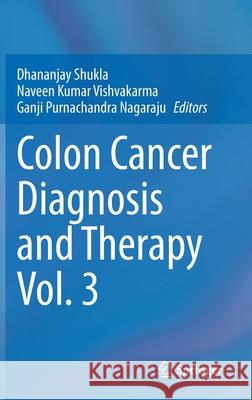Colon Cancer Diagnosis and Therapy Vol. 3 » książka
topmenu
Colon Cancer Diagnosis and Therapy Vol. 3
ISBN-13: 9783030727017 / Angielski / Twarda / 2022 / 440 str.
Kategorie BISAC:
Wydawca:
Springer
Język:
Angielski
ISBN-13:
9783030727017
Rok wydania:
2022
Wydanie:
2021
Ilość stron:
440
Waga:
0.84 kg
Wymiary:
23.39 x 15.6 x 2.69
Oprawa:
Twarda
Wolumenów:
01
Dodatkowe informacje:
Wydanie ilustrowane











